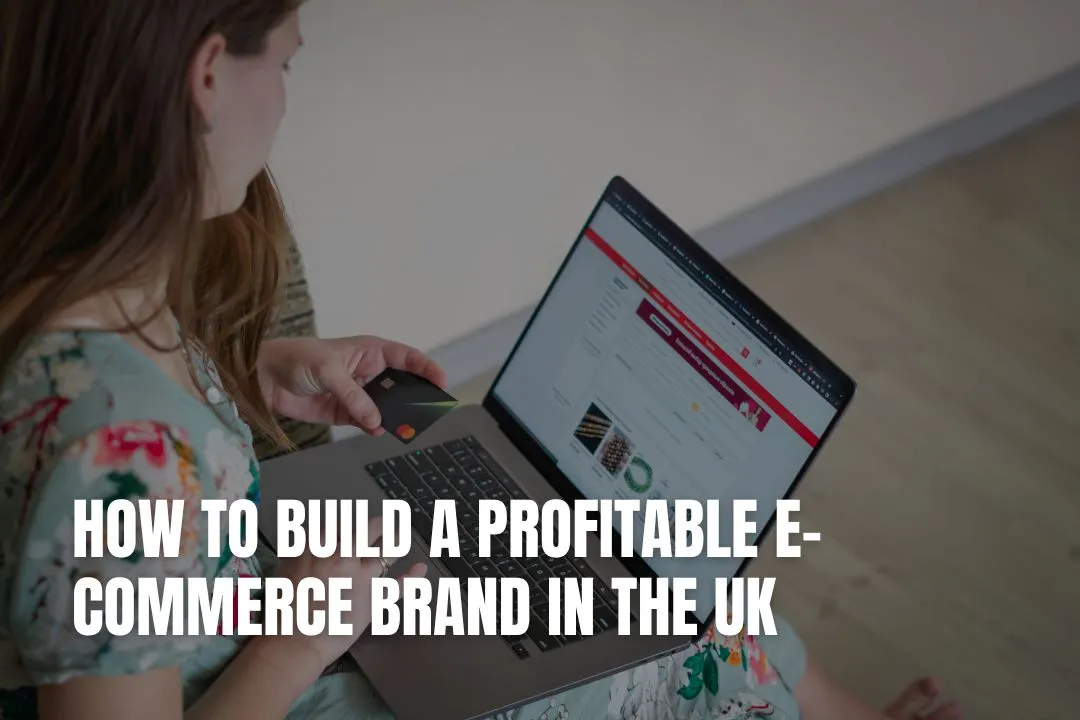
Editorial Disclaimer
This content is published for general information and editorial purposes only. It does not constitute financial, investment, or legal advice, nor should it be relied upon as such. Any mention of companies, platforms, or services does not imply endorsement or recommendation. We are not affiliated with, nor do we accept responsibility for, any third-party entities referenced. Financial markets and company circumstances can change rapidly. Readers should perform their own independent research and seek professional advice before making any financial or investment decisions.
The UK e-commerce market is booming, as millions of consumers prefer online shopping for its convenience and variety. This creates an excellent opportunity for entrepreneurs, but the competition is fierce. To succeed, businesses need a clear strategy, consistent execution, and strong customer-focused branding.
This guide outlines steps to build a profitable e-commerce brand in the UK, covering market research to customer retention. Whether you're starting fresh or scaling up, these strategies can support sustainable growth.
The UK boasts a highly advanced online shopping market, with nearly 30% to 45% of retail sales occurring online, a figure that keeps rising. This trend offers opportunities for businesses of all sizes, but also intensifies competition. Especially with global players like Amazon, eBay, and ASOS leading the market.
To succeed in a competitive market, new or expanding brands must identify their unique position. Understanding UK consumers, cultural trends, and the competition is key to achieving success. Let’s embrace the journey!
British shoppers are eager for exceptional online experiences. However, shaped by their interactions with leading e-commerce brands.
Key trends include:
British shoppers prefer websites with visible SSL certificates, trust badges, and familiar payment methods.
In the UK, culture and values shape shopping habits. Brands that connect with meaningful cultural movements truly resonate with their audience. This will also create inspiring success stories!
Key trends include:
Aligning with these trends taps into consumer values beyond price.
To build a profitable e-commerce brand in the UK, it’s essential to understand the basics of brand-building. Whether you're starting fresh or expanding an existing store. This guide offers 7 effective strategies that will help you build your e-commerce brand.
To succeed in the crowded UK online retail market, you need a clear vision and strategy. Differentiation is key from the beginning. Expert Digital Strategy Consulting can help you align your goals with market opportunities.
Your vision must address these key questions:
A strategic roadmap is essential for effective investment of your time and resources. Without it, you risk wasting money on ineffective marketing channels or products that don’t connect with your audience.
The UK consumer market is wonderfully diverse! To successfully position your brand, consider these key points:
By understanding your audience, you can create targeted marketing. And tailored products that truly resonate!
Your brand is how customers perceive you. In the UK, brands with personality and values stand out.
To create a strong brand identity:
A clear identity builds trust and loyalty, helping you compete in crowded markets.
Your online store's success starts with the right platform. In the UK, consider these options:
When choosing a platform, focus on these key factors:
In today's competitive UK market, harnessing the power of effective SEO is essential for your business's success! Securing a spot on Google's first page for relevant keywords enhances your visibility. However, it also draws in valuable organic traffic.
Here are some key areas to focus on:
With a strong SEO strategy, you'll save on long-term marketing costs while building your brand's credibility!
UK shoppers are active on social media, making it essential for brands. Key tips:
Stay consistent, plan content, and leverage social proof for trust.
A profitable brand relies on repeat customers. And in the UK, expectations are high for fast delivery, easy returns, and responsive support.
To enhance customer experience:
Satisfied customers return and become advocates, leaving positive reviews that attract new buyers.
You can build a successful e-commerce brand in the UK by identifying your niche. Also, by impressing customers with strong branding and service!
By emphasising trust, retention, and scalability, you can build a loyal customer base.
Key trends you should focus on include offering fast, reliable delivery, ensuring your website is optimised for mobile phones, and providing flexible payment options like 'Buy Now, Pay Later'. Additionally, UK shoppers increasingly favour brands that are sustainable and ethically conscious.
When selecting a platform like Shopify or WooCommerce, ensure it supports popular UK payment gateways such as PayPal, Klarna, and Apple Pay. It should also integrate smoothly with local delivery services like Royal Mail and DPD to handle your shipping needs efficiently.
Local SEO helps your brand appear in search results when UK customers are looking for products like yours. By targeting UK-specific keywords (e.g., “skincare products London”) and setting up a Google Business Profile, you attract relevant traffic that is more likely to convert into sales.
A strong brand identity connects with customers on a personal level. This involves creating a memorable logo and colour scheme, using a consistent tone of voice across all communications, and clearly showcasing your brand's values, such as a commitment to sustainability or local sourcing.
To encourage repeat business, provide outstanding customer service. This includes offering live chat support, simplifying your returns process with prepaid labels, and using personalisation to recommend products. A great experience turns one-time buyers into loyal advocates for your brand.